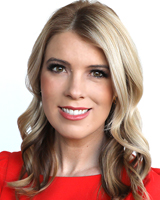Bay Area educators, medical professionals concerned after Pres. Trump pressures schools to reopen


SAN FRANCISCO (KGO) -- Despite spikes in new cases of the novel coronavirus, the Trump Administration is making an all-out push to get kids back into the classroom.
"We want to reopen the schools. Everybody wants it. The moms want it. The dads want it," said President Trump on Tuesday at a roundtable discussion on how to safely reopen schools.
RELATED: Trump threatens to cut federal aid if schools don't reopen
A Petaluma private school principal and student were invited to the discussion. Saint Vincent sophomore, Cameron Vaughn, said he's anxious to return back to class.
"It really means a lot just to be able to get back out and it means a lot to our emotional health and our mental health just to be out there with our friends because a lot of us don't have that opportunity," Vaughn said.
President Trump's comments were echoed by Education Secretary Betsy DeVos, who slammed distance learning.
During a call with governors, DeVos criticized distance education and split schedule plans by many of the county's school districts, saying schools must reopen.
"It would really fail all of American students and it would fail taxpayers who are paying high taxes for education," DeVos said. "Ultimately, it's not a matter of if need to open, it's a matter of how. Schools must fully open and must be fully operational. And how that happens is best left to education and community leaders."
RELATED: Guidance for opening CA schools includes physical distancing, staff face mask requirement
But many of those educators feel differently.
"I'm highly concerned," said Awele Makeba, a drama teacher at Skyline High School in Oakland, a Title I school.
She's in favor of distance learning at Skyline in part, because she's not even sure how students will get to school safely.
"45% are Latino, 45% are African American, and 10% are other," she said. "So the population of my school is greatly impacted and about a thousand of those children travel by AC Transit and they're packed in like sardines, on top of each other. And I've not heard conversations around under safety, physical and social distancing, what does that look like on a bus?"
RELATED: How big will class sizes be in California schools? State superintendent predicts 10 to 15 students
And at school, Makeba says they often run out of basic health supplies.
"Soap runs out every month at different points, trying to find a different bathroom with soap. We don't have hot water at our schools, or we hadn't had hot water.... Paper towels run out, toilet paper runs out," Makeba said.
The medical perspective on returning to school is nuanced.
"Younger children seem to be somewhat less susceptible to infection, and if infected they seem to be somewhat less likely to transmit the virus," said Dr. George Rutherford, a UCSF epidemiologist and pediatrician.
REOPENING SCHOOLS: San Jose charter school welcomes students back with COVID-19 precautions in place
"Once you get to middle school and high school though, all bets are off."
Dr. Rutherford explained why. "Children 10 and under have fewer of these receptors that the virus binds to. As they get older you get more and more of the receptors, until you reach 18 and they have the exact same number that adults do."
Dr. Rutherford thinks a mix of in-person and distance learning is the best option.
"You want to keep class sizes around 15, which means that you've created social distancing within the class," Rutherford said.
REOPENING SF: San Francisco health officials release school reopening guidelines amid COVID-19 pandemic
"I think half time is a lot better than full time distance learning. I think they'll get better socialized, I think they'll get better educational skills, and especially the younger ones will get used to school."
If you have a question or comment about the coronavirus pandemic, submit yours via the form below or here.
Get the latest news, information and videos about the novel coronavirus pandemic here RELATED STORIES & VIDEOS:
- COVID-19 Help: Comprehensive list of resources, information
- From salons to dinner parties: Experts rate the risk of 12 activities
- California reopening: Here's what's open, closed in the Bay Area
- Watch list: Counties where COVID-19 is getting worse
- When will the San Francisco Bay Area reopen? Track progress on 6 key metrics to reopening here
- Life after COVID-19: Here's what restaurants, gyms will look like
- Here's everything allowed to open in CA (and what we're still waiting on)
- What is a COVID-19 genetic, antigen and antibody test?
- What will it take to get a COVID-19 vaccine and how will it be made?
- What does COVID-19 do to your body and why does it spread so easily?
- Here's how shelter in place, stay at home orders can slow spread of COVID-19
- Coronavirus Timeline: Tracking major moments of COVID-19 pandemic in San Francisco Bay Area
- Experts compare face shield vs. face mask effectiveness
- List: Where can I get tested for COVID-19 in the Bay Area?
- COVID-19 Diaries: Personal stories of Bay Area residents during novel coronavirus pandemic
- Coronavirus Doctor's Note: Dr. Alok Patel gives his insight into COVID-19 pandemic
- WATCH: ABC7 Listens 'From Anger To Action: A Bay Area Conversation'
- Symptoms, prevention, and how to prepare for a COVID-19 outbreak in the US








